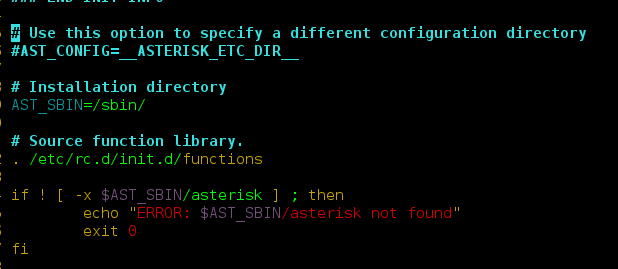An element in a stack trace, as returned by Throwable.getStackTrace(). Each element represents a single stack frame. All stack frames except for the one at the top of the stack represent a method invocation. The frame at the top of the stack represents the execution point at which the stack trace was generated.
This class describes single stack frame, which is an individual element of a stack trace when an exception occur.
- All stack frames except for the one at the top of the stack represent a method invocation.
- The frame at the top of the stack represent the execution point of which the stack trace was generated.
- Each stack frame represents an execution point, which includes such things as the name of the method, the name of file and the source code line number.
- An array of StackTraceElement is returned by getStackTrace()
method of the Throwable class.
Constructor: Creates a stack trace element representing the specified execution point.
StackTraceElement(String declaringClass, String methodName, String fileName, int lineNumber)
Parameters:
- declaringClass – the fully qualified name of the class containing the execution point represented by the stack trace element.
- methodName – the name of the method containing the execution point represented by the stack trace element.
- fileName – the name of the file containing the execution point represented by the stack trace element, or null if this information is unavailable
- lineNumber – the line number of the source line containing the execution point represented by this stack trace element, or a negative number if this information is unavailable. A value of -2 indicates that the method containing the execution point is a native method.
Throws: NullPointerException – if declaringClass or methodName is null.
Methods:
1. boolean equals(ob): Returns try if the invoking StackTraceElement is as the one passed in ob. Otherwise it returns false.
Syntax: public boolean equals(ob) Returns: true if the specified object is another StackTraceElement instance representing the same execution point as this instance. Exception: NA
Java
// Java code illustrating equals() methodimport java.lang.*;import java.io.*;import java.util.*;public class StackTraceElementDemo{ public static void main(String[] arg) { StackTraceElement st1 = new StackTraceElement("foo", "fuction1", "StackTrace.java", 1); StackTraceElement st2 = new StackTraceElement("bar", "function2", "StackTrace.java", 1); Object ob = st1.getFileName(); // checking whether file names are same or not System.out.println(st2.getFileName().equals(ob)); }} |
Output:
true
2. String getClassName(): Returns the class name of the execution point described by the invoking StackTraceElement.
Syntax: public String getClassName(). Returns: the fully qualified name of the Class containing the execution point represented by this stack trace element. Exception: NA.
Java
// Java code illustrating getClassName() method.import java.lang.*;import java.io.*;import java.util.*;public class StackTraceElementDemo{ public static void main(String[] arg) { System.out.println("Class name of each thread involved:"); for(int i = 0; i<2; i++) { System.out.println(Thread.currentThread().getStackTrace()[I]. getClassName()); } }} |
Output:
Class name of each thread involved: java.lang.Thread StackTraceElementDemo
3. String getFileName(): Returns the file name of the execution point described by the invoking StackTraceElement.
Syntax: public String getFileName(). Returns: the name of the file containing the execution point represented by this stack trace element, or null if this information is unavailable. Exception: NA.
Java
// Java code illustrating getFileName() method.import java.lang.*;import java.io.*;import java.util.*;public class StackTraceElementDemo{ public static void main(String[] arg) { System.out.println("file name: "); for(int i = 0; i<2; i++) System.out.println(Thread.currentThread().getStackTrace()[i]. getFileName()); }} |
Output:
file name: Thread.java StackTraceElementDemo.java
4. int getLineNumber(): Returns the source-code line number of the execution point described by the invoking StackTraceElement. In some situation the line number will not be available, in which case a negative value is returned.
Syntax: public int getLineNumber(). Returns: the line number of the source line containing the execution point represented by this stack trace element, or a negative number if this information is unavailable. Exception: NA.
Java
// Java code illustrating getLineNumber() method.import java.lang.*;import java.io.*;import java.util.*;public class StackTraceElementDemo{ public static void main(String[] arg) { System.out.println("line number: "); for(int i = 0; i<2; i++) System.out.println(Thread.currentThread().getStackTrace()[i]. getLineNumber()); }} |
Output:
line number: 1556 10
5. String getMethodName(): Returns the method name of the execution point described by the invoking StackTraceElement.
Syntax: public String getMethodName(). Returns: the name of the method containing the execution point represented by this stack trace element. Exception: NA.
Java
// Java code illustrating getMethodName() method.import java.lang.*;import java.io.*;import java.util.*;public class StackTraceElementDemo{ public static void main(String[] arg) { System.out.println("method name: "); for(int i = 0; i<2; i++) System.out.println(Thread.currentThread().getStackTrace()[i]. getMethodName()); }} |
Output:
method name: getStackTrace main
6. int hashCode(): Returns the hash code of the invoking StackTraceElement.
Syntax: public int hashCode(). Returns: a hash code value for this object. Exception: NA.
Java
// Java code illustrating hashCode() method.import java.lang.*;import java.io.*;import java.util.*;public class StackTraceElementDemo{ public static void main(String[] arg) { System.out.println("hash code: "); for(int i = 0; i<2; i++) System.out.println(Thread.currentThread().getStackTrace()[i]. hashCode()); }} |
Output:
hash code: -1225537245 -1314176653
7. boolean isNativeMethod(): Returns true if the invoking StackTraceElement describes a native method. Otherwise returns false.
Syntax: public boolean isNativeMethod(). Returns: true if the method containing the execution point represented by this stack trace element is a native method. Exception: NA.
Java
// Java code illustrating isNativeMethod() method.import java.lang.*;import java.io.*;import java.util.*;public class StackTraceElementDemo{ public static void main(String[] arg) { for(int i = 0; i<2; i++) System.out.println(Thread.currentThread().getStackTrace()[i]. isNativeMethod()); }} |
Output:
false false
8. String toString(): Returns the String equivalent of the invoking sequence.
Syntax: public String toString(). Returns: a string representation of the object. Exception: NA.
Java
// Java code illustrating toString() method.import java.lang.*;import java.io.*;import java.util.*;public class StackTraceElementDemo{ public static void main(String[] arg) { System.out.println("String equivalent: "); for(int i = 0; i<2; i++) System.out.println(Thread.currentThread().getStackTrace()[i]. toString()); }} |
Output:
String equivalent: java.lang.Thread.getStackTrace StackTraceElementDemo.main
This article is contributed by Abhishek Verma. If you like Lazyroar and would like to contribute, you can also write an article using write.geeksforgeeks.org or mail your article to review-team@geeksforgeeks.org. See your article appearing on the Lazyroar main page and help other Geeks.
Please write comments if you find anything incorrect, or you want to share more information about the topic discussed above.




